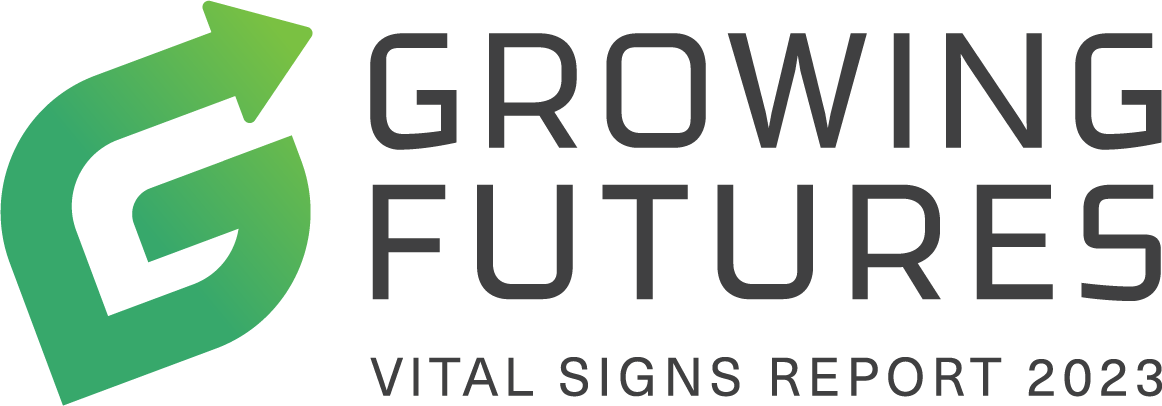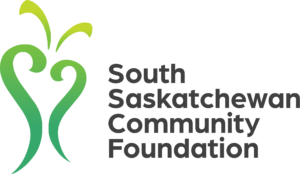Regina's Non-Profit Voices:
Addressing Funding Gaps
On September 17, 2024, the Community Foundation organized a conversation among non-profit representatives to address Regina’s pressing challenges identified in the ‘Growing Futures: Vital Signs Report 2023.’ Representatives from 25 non-profit organizations provided insights. Participants aimed to collaborate on innovative solutions to enhance their collective impact on community needs. The following challenges, recommendations, and collaborative opportunities are based on a summary of the findings from this conversation.
Funding and Capacity Challenges Non-Profits are Facing
Funding Competition
Heightened competition for grants restricts resources for established programs and can create barriers to collaboration.
Funding Priority Misalignment
Insufficient investment, along with funding requirements that are too restrictive, limit an organization’s ability to innovate and expand community services.
Staff Retention and Capacity
Difficulty in hiring and retaining staff due to inadequate compensation, high workload stress, and program funding that does not cover basic operational costs.
How Funders and Supporters Can Make a Bigger Impact
Provide Unrestricted Operational Funding
Cover necessary administrative and staffing costs in addition to program funding. This core funding for an organization is essential to the sustainability, efficiency, and success of non-profits.
Understand the True Costs of Delivering Services
The true costs of delivering programs and services include operations such as staffing, facilities, equipment, and administrative needs. Reach out to an organization to understand the full scope of their needs.
Collaborate with Non-Profits and Amongst Funders
Get input from non-profits when creating funding opportunities to make sure funder requests align with community need. Funders can also collaborate together to pool funds and make larger impacts.
How Collective Resources and Collaboration Can Lead to Bigger Impact
Pooling Resources for Collective Impact
Non-profits can benefit from shared resources, training, skill development, professional services, outcome reporting, and program costs. A shared workspace could also increase capacity, efficiencies, and reduce operational costs.
Community Foundation Acting as a Connector
The Community Foundation can act as an ongoing connector by facilitating partnerships, bringing non-profit organizations together for collaborative opportunities, and guide collaborative resources and funding.
Collective Advocacy
Non-profits can work together to advocate for broader systemic changes, equitable funding practices, and policies. The Community Foundation can coordinate and amplify non-profit sector voices in a non-partisan manner.
Suggested Actions for Supporters to Take
Community Foundation’s Commitments to Support Non-Profits:
- Consistent leadership meetings with non-profits to discover collaborative opportunities, identify actionable items, help organizations take action, and provide supports.
- Identify non-profits who are applying for grant funding through new or existing programs and connect them with other organizations doing similar work in order to facilitate collaboration, enhance efficiencies, and build capacities.
- Work to bring donors, businesses, private foundations, and other supporting stakeholders together to pool funding opportunities together to create a larger impact towards aligned community causes.
- Offer educational opportunities for donors and community stakeholders to learn more about the trends, challenges, and needs of the non-profit sector.
- Promote and encourage flexible funding practices to funders in order to place a greater focus on the operational needs of non-profit organizations.
- Act as a non-partisan voice for the non-profit sector to advocate for broader systemic changes, equitable funding practices, and policies. The Community Foundation will connect with government agencies to amplify the voices and needs of the non-profit sector and the communities it serves.
Suggestions for Donors, Businesses, and Private Foundations:
- Allowing flexibility on funding requests to include operational needs, such as equipment, infrastructure repair, staffing related costs, and other administrative needs can increase the efficiency and success of non-profits.
- Create deeper relationships with non-profit organizations you support in order to be open to understanding their most crucial funding needs and see how their administrative needs impact the outcomes they work to achieve.
Implement input from non-profit organizations into grant making, grant reporting, and funding restrictions to enhance the impacts made through donor gifts.
- Donors can collaborate to pool funds and make a larger impact towards your aligned causes of choice. The Community Foundation can assist in the facilitation of this collaboration.
Suggestions for Government Agencies:
- Invite non-profit organizations to the table during all aspects of grant making, including consultation for grant criteria, requirements, reporting expectations, and outcome data. The Community Foundation can assist in the facilitation of this collaboration.
- This can allow for better alignment of government and non-profit goals, giving non-profits opportunities for better planning and delivery of community services.
- When creating and adapting policies, non-profit representation can increase cohesion at an early stage of the process, making it more efficient and effecting for non-profit organizations to deliver services in alignment with policy goals. The Community Foundation can assist in the facilitation of this collaboration.
Who Was Included in the Conversation:
The following organizations provided input through a survey ahead of the meeting and/or were represented in-person at the September 17, 2024 facilitated conversation.
- AIDS Program South Saskatchewan
- Astonished!
- Canadian National Institute for the Blind (CNIB)
- The Caring Place
- Carmichael Outreach
- The Elizabeth Fry Society of Saskatchewan
- Family Service Regina
- John Howard Society of Saskatchewan
- Luther College Nonprofit and Voluntary Sector Studies Network
- North Central Family Centre
- OSI-CAN (Operational Stress Injury Canada)
- Phoenix Residential Society
- Rainbow Youth Centre
- REACH Regina
- REALM
- Regina Food Bank
- Regina Food for Learning
- Regina Region Local Immigration Partnership (RRLIP)
- Regina Transition House
- Regina Work Prep Centre
- South Saskatchewan Community Foundation
- Street Culture Project
- Caring Hearts (*Survey Only)
- The Circle Project (*Survey Only)
- InfiNATE Initiatives (*Survey Only)
- Regina Street Team (*Survey Only)
The Number of Organizations Who Are Directly Linked to the Vital Signs Focus Areas:
5 Organizations who participated do not specifically address the Vital Signs focus areas.


